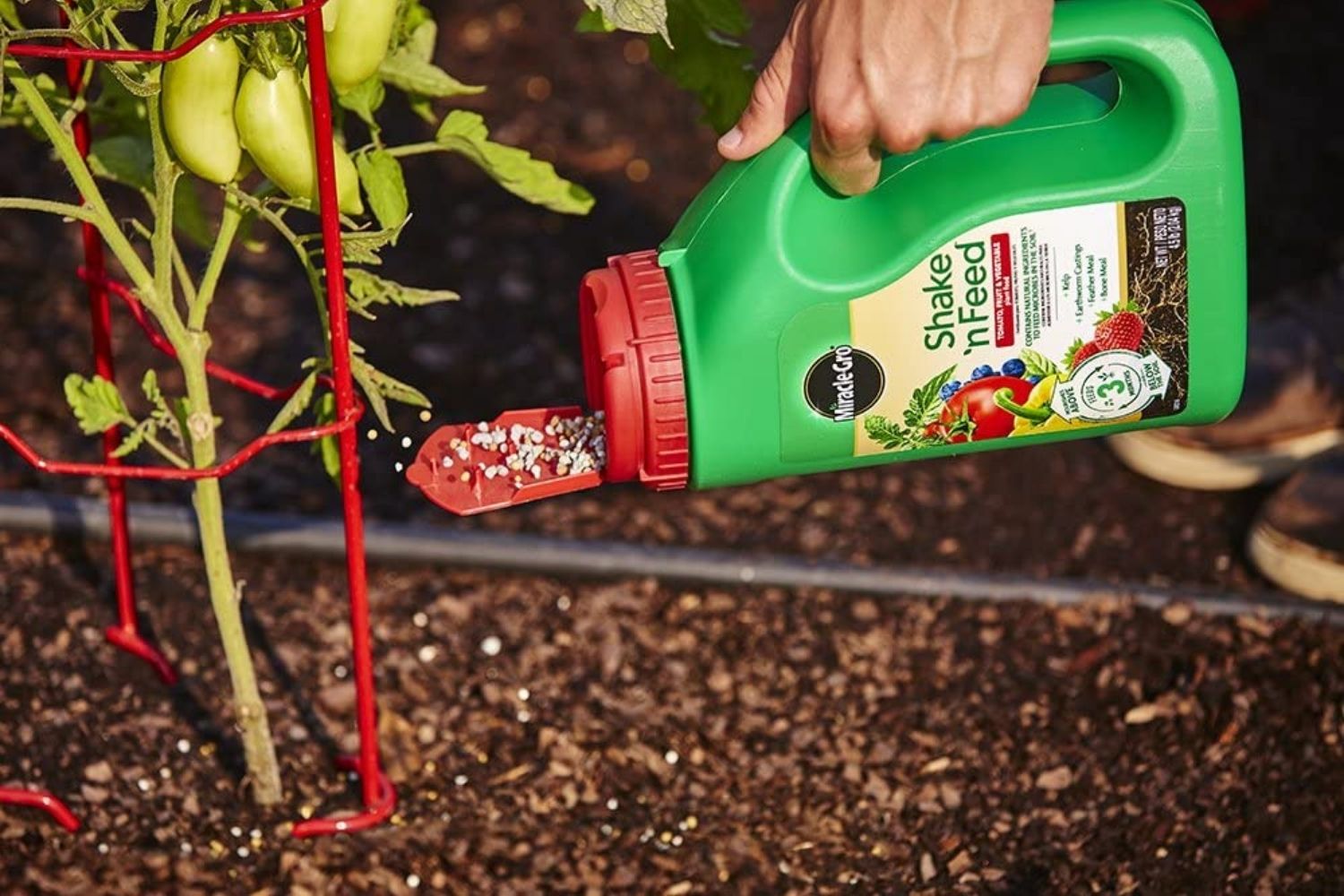Check Out the Best Fertilizers for Peppers and Enhance Your Garden's Return
Check Out the Best Fertilizers for Peppers and Enhance Your Garden's Return
Blog Article
Organic Vs. Synthetic Fertilizers: Which Is Best for Supporting Healthy Pepper Plants?
In the realm of nurturing healthy pepper plants, the choice between organic and artificial fertilizers stands as a critical decision with far-ranging ramifications. While both alternatives purpose to give essential nutrients to sustain plant growth, the nuances of their influence on the soil, plant health, and the setting trigger a debate that mirrors throughout the gardening area. Understanding the unique benefits and prospective pitfalls of each fertilizer type is crucial for pepper farmers looking for to optimize their yields while keeping an eco-conscious and lasting technique.
Benefits of Organic Plant Foods
Organic plant foods offer an environmentally-friendly and lasting strategy to nourishing pepper plants, offering necessary nutrients without using synthetic chemicals. These natural fertilizers are stemmed from organic sources such as compost, manure, bone meal, and algae, promoting dirt health and biodiversity. Unlike synthetic plant foods, organic choices launch nutrients gradually, guaranteeing a constant and well balanced supply for pepper plants to flourish.
One considerable benefit of natural plant foods is their capability to boost dirt structure and water retention. By boosting dirt health, natural plant foods promote beneficial microbial activity, which helps in nutrient uptake by pepper plants. Additionally, natural fertilizers lower the threat of chemical run-off, protecting water resources from air pollution and protecting the setting.
Moreover, organic fertilizers add to long-lasting dirt fertility by advertising the growth of advantageous soil organisms. These microorganisms aid break down natural matter, releasing nutrients in a form that is quickly available to pepper plants. best fertilizers for peppers. By promoting a healthy and balanced soil ecosystem, natural fertilizers support lasting pepper farming practices that profit both plants and the atmosphere
Disadvantages of Artificial Fertilizers
Synthetic fertilizers, in contrast to their natural counterparts, posture different negative aspects when made use of to nurture pepper plants, affecting both plant health and wellness and environmental sustainability. One significant downside of synthetic fertilizers is their tendency to seep nutrients from the soil promptly.
In addition, the overuse of synthetic fertilizers can add to water contamination. Excess plant foods not absorbed by plants can get rid of right into water bodies, resulting in eutrophication, where algae blossoms deplete oxygen degrees in the water, hurting marine life. In addition, synthetic fertilizers are normally stemmed from non-renewable sources, such as fossil fuels, adding to carbon exhausts and environmental deterioration during their production.
Nutrient Absorption Contrast
Efficient nutrient absorption plays a vital role in the general wellness and development of pepper plants. When contrasting natural and synthetic plant foods in regards to nutrient absorption, organic plant foods have the benefit of providing an extra well balanced and slow-release resource of nutrients (best fertilizers for peppers). Organic plant foods contain visit this site a variety of macro and trace elements that are not only useful for the plants however likewise advertise healthy and balanced dirt microbial task, which aids in nutrient uptake. On the other hand, artificial plant foods commonly give a fast release of nutrients, which can lead to seeping and drainage, causing lower nutrient absorption rates by the plants.
Moreover, natural plant foods enhance dirt framework and water retention capacity, allowing pepper plants to accessibility nutrients extra efficiently. This enhanced soil quality assists in origin advancement, making it possible for better nutrient absorption. Synthetic plant foods, although at first improving plant growth because of their high nutrient focus, might impede long-lasting nutrient absorption by derogatory dirt health over time.
Ecological Influence Factors To Consider

On the other hand, artificial fertilizers, although frequently more focused and quickly available to plants, can have detrimental effects on the setting otherwise applied effectively (best fertilizers for peppers). Their production requires high power inputs, causing greenhouse gas exhausts and adding to climate change. In addition, the drainage of excess synthetic plant foods can pollute water resources, leading to eutrophication and hurting water ecosystems.
Ideal Plant Food Practices for Peppers
To achieve this, it is crucial to comply with best plant food techniques customized to the particular needs of pepper plants. One important technique is to execute a More Info soil test before using any kind of fertilizers.
One more essential technique is to feed pepper plants at the correct time. Normally, peppers profit from receiving plant food at planting and after that once again when they begin to blossom. Over-fertilizing can lead to vitamins and mineral discrepancies and hurt the plants, so it is crucial to follow recommended application rates.
Additionally, picking a balanced fertilizer with an NPK proportion that fits pepper plants' needs is fundamental. Organic plant foods, such as compost or manure, can be exceptional options as they launch nutrients slowly and enhance dirt framework gradually. However, artificial plant foods can offer a fast nutrient increase when required. Eventually, incorporating organic and artificial plant foods judiciously can aid nurture healthy pepper plants while lessening ecological effect.
Final Thought

Organic plant foods use an environmentally-friendly and lasting technique to beneficial pepper plants, supplying crucial nutrients without the usage of synthetic chemicals. Unlike artificial plant foods, natural choices release nutrients gradually, making sure a consistent and well balanced supply for pepper plants to prosper.
Synthetic fertilizers, in comparison to their organic counterparts, pose numerous disadvantages when utilized to nourish pepper plants, influencing both plant health and wellness and ecological sustainability. When comparing natural and synthetic plant foods in terms of nutrient absorption, organic plant foods have the advantage of providing an extra well balanced and slow-release source of nutrients.Moreover, natural fertilizers improve dirt framework and water retention capability, allowing pepper plants to access nutrients extra efficiently.
Report this page